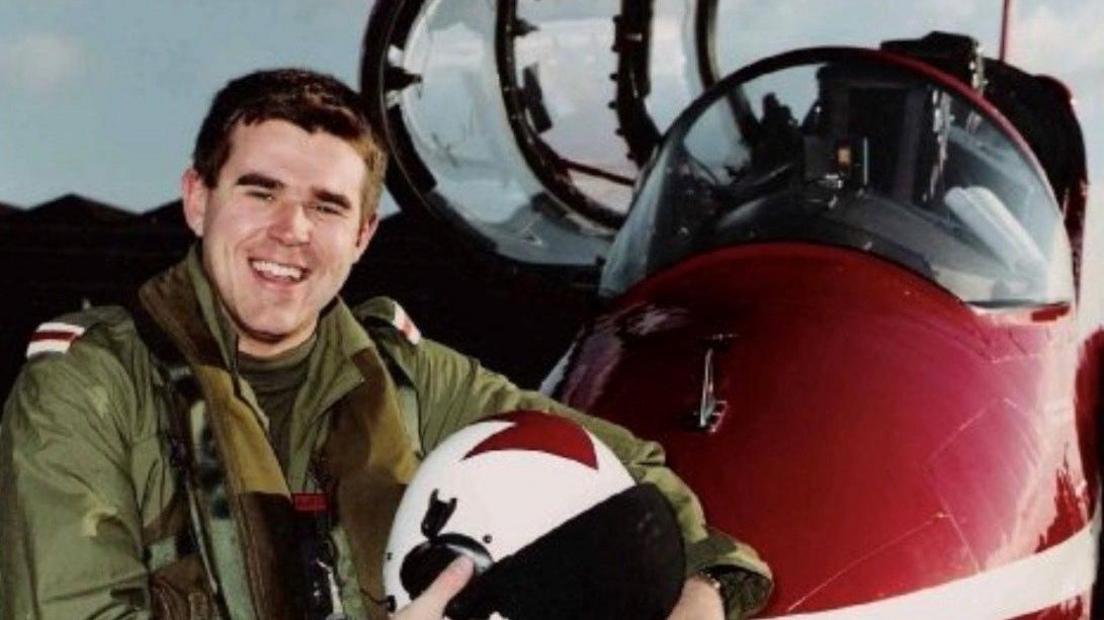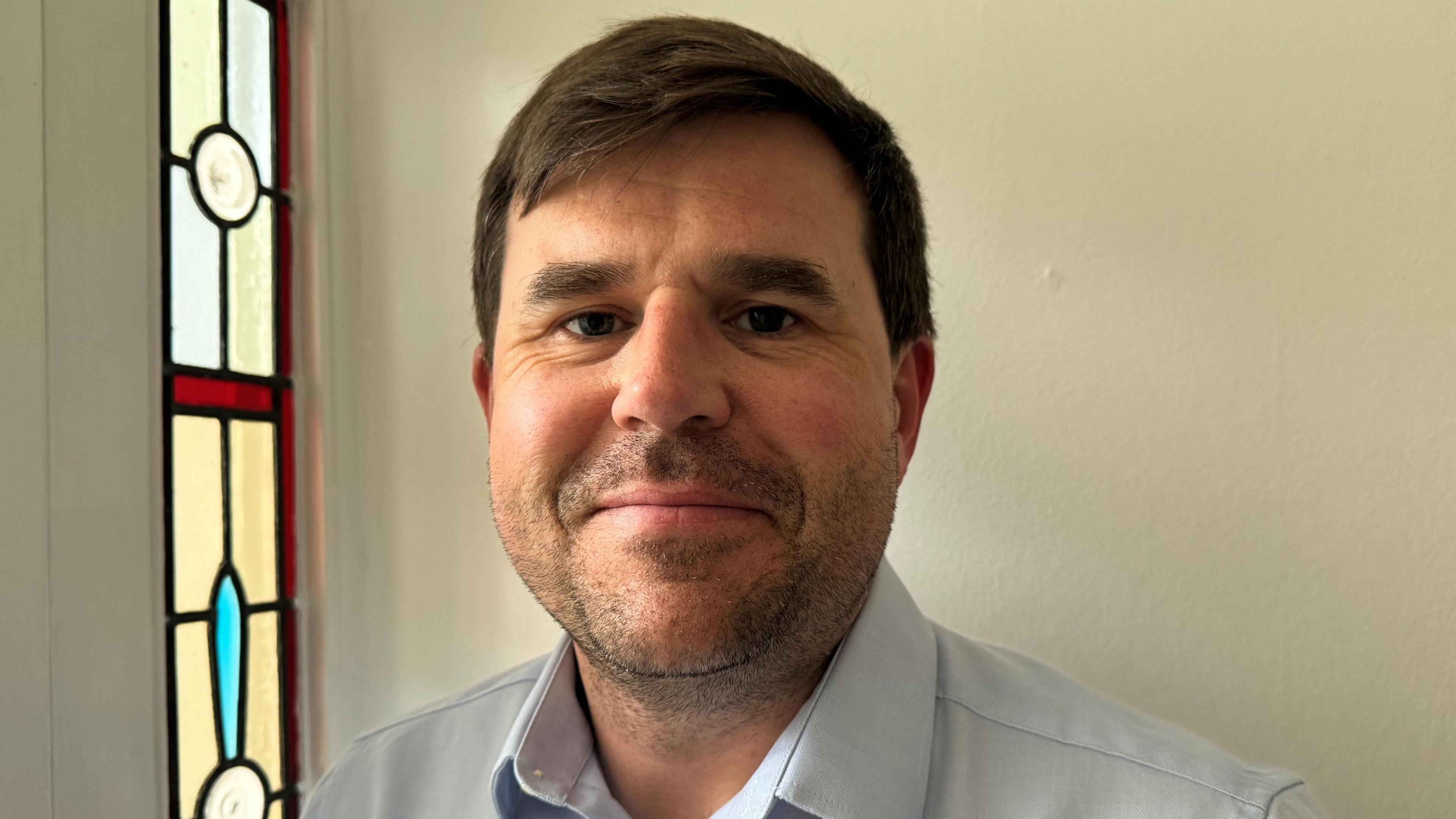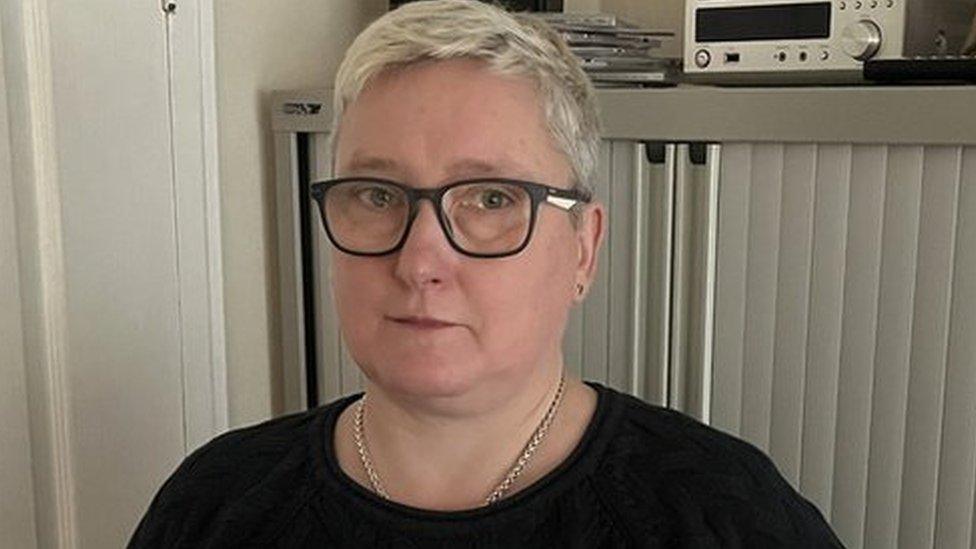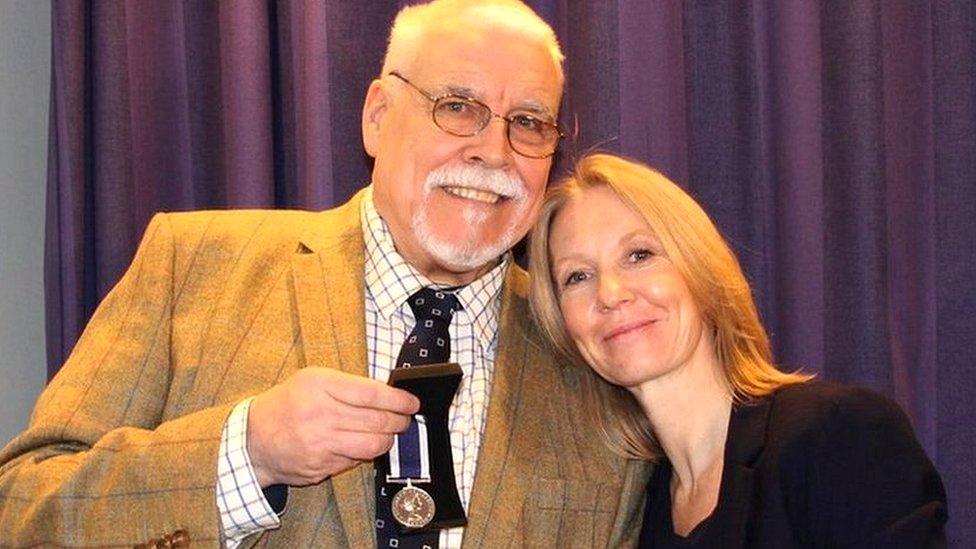Compensation process broken, says RAF veteran

Mr Hewitt says it was difficult to come to terms with losing his career at such a young age
- Published
Ian Hewitt joined the RAF as a trainee pilot in April 1999.
After just two months, Mr Hewitt, who is based in Lytham, ruptured his spine during a training exercise.
His dream of being a pilot in the RAF was over.
"At that age, to realise that not only have you lost your career, but you've lost a big part of your physical self," he said.
'Reject claims unfairly'
Mr Hewitt was medically discharged from the Armed Forces in 2003 and since then he has suffered from chronic pain.
Any veteran who has an injury or illness as a result of service can apply for financial compensation from one of two schemes run by Veterans UK, a veterans service managed by the Ministry of Defence (MoD).
The Armed Forces Compensation Scheme is in place for injuries on or after 6 April 2005. Anything before, is handled by the War Pension Scheme.
Veterans have long criticised both schemes. Some say they reject claims unfairly, and are slow to resolve them.
The BBC's File on 4 programme has been told in some cases it's taken almost 12 years for a final decision to be made.
Mr Hewitt applied for compensation from the War Pension Scheme.
At first Veterans UK assessed his condition and offered him a one-off payment of about £7,700.
But no longer being able to work, Mr Hewitt took Veterans UK to a tribunal.
With help from a solicitor, he appeared before a judge to share evidence from his medical records.

Mr Hewitt hopes changes will be made
Mr Hewitt won the tribunal and was awarded a pension of about £2,000 a month.
But years later in 2016, his health began to deteriorate with new symptoms like headaches, fatigue and a burning pain in his hands and feet.
He was diagnosed with functional neurological disorder and reported his change of condition to Veterans UK hoping to have his pension reassessed.
His claim was rejected.
Mr Hewitt took Veterans UK to tribunal once again, with the help of his father.
He told the BBC the process of doing so, whilst coping with the condition, was demanding.
"That added stress, certainly in my case with functional neurological disorder, makes things worse physically."
He said he was "utterly debilitated" by the process.
In 2021 he won once again. He said he believed the compensation process was "broken" and believed there was a "determination of the system and people within the system, to see what they can get away with".
LISTEN: File On 4 on BBC Radio 4 at 20:00 BST on Tuesday or on BBC Sounds.
A record high number of complaints were made about Veterans UK to the Parliamentary and Health Service Ombudsman in 2023/24, rising tenfold since 2019.
In the last financial year the ombudsman received 31 complaints – compared to three in 2019.
In 2023, the complaints system was restructured by Veterans UK, yet the Ombudsman has told the BBC it was unsure why they had seen such a big increase.
Mr Hewitt said he hoped constructive change would be made for all veterans who applied to both schemes "as they fail to treat us in the way that we deserve".
The MoD told the BBC under both schemes, it ensured all those who have an illness or injury caused by their service "receive the compensation they were entitled to" and the process was designed to not be "onerous".
The MoD added even when the tribunal does reach a different conclusion, it does not mean the "decision made by Veterans UK was wrong".
It encouraged all veterans requiring advice or support to get in touch and said it was always "looking to improve its processes" and had adopted "a number of recommendations following a regular review".
Listen to the best of BBC Radio Lancashire on Sounds and follow BBC Lancashire on Facebook, external, X, external and Instagram, external. You can also send story ideas to northwest.newsonline@bbc.co.uk, external
Related topics
- Published15 December 2023

- Published20 February 2024
